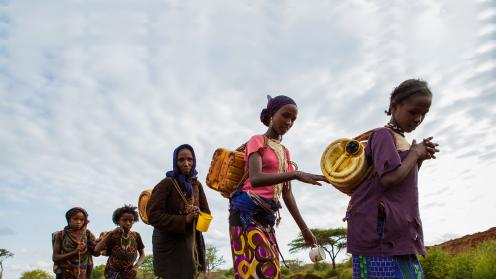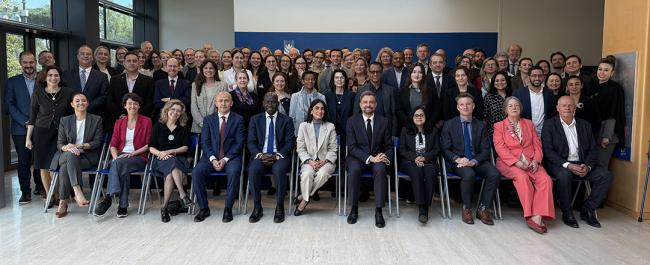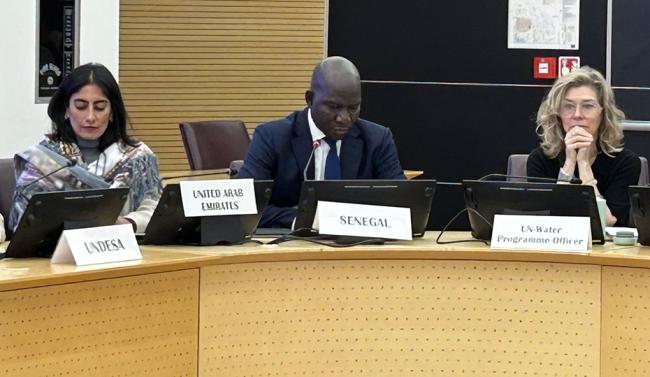A lengthy discussion on preparations for the 2026 UN Water Conference dominated the second day of the 41st UN-Water meeting. Representatives from the co-host countries briefed participants on their expectations, and discussions focused on preparations during 2025, including the selection of themes for the six interactive dialogues.
Representatives from the co-hosts – Senegal and the United Arab Emirates (UAE) – led the discussion. Mohamed C.B.C. Diatta, Senegal’s Sherpa for the 2026 UN Water Conference, highlighted that the Conference will focus on the overall objective of “Accelerating progress on SDG 6.” Diatta reported that a meeting in Dakar, Senegal, later this year will begin shaping the outcome for the Conference.
Shaima Hussain Gargash, UAE Ministry of Foreign Affairs, noted her government’s commitment to drive an inclusive process that brings people together. She looked forward to furthering global action on water together and stressed the importance of solutions-oriented communication.
Madhushree Chatterjee, UN-Water Secretary, reviewed the timeline for the Conference until December 2025. Following an initial discussion on possible themes, which took place on 3 March 2025, Member States, the UN system, and stakeholders were invited to provide input until 11 April. A draft background note will be circulated to UN Member States on 12 May and Member States will be briefed by early June. On 9 July, the President of the UN General Assembly will hold a consultation and the themes for the interactive dialogues will be finalized. She said the meeting in Dakar is expected to take place in either December 2025 or January 2026.
Chatterjee reported the 3 March meeting revealed broad support for retaining four of the themes adopted for the UN 2023 Water Conference: water for health; water for sustainable development; water for climate, resilience, and environment; and water for cooperation. On the fifth theme, some suggested changing the 2023 theme of “Water Action Decade” to water in the international agenda, water beyond 2030, or water and governance.
A sixth theme will also be selected. Chatterjee said proposals for a new theme included: means of implementation; pollution; human rights; nexus issues, such as security or food; and integrated water management.
Several speakers supported continuity in the themes from the 2023 Conference to the 2026 Conference. Alternative proposals for the sixth theme included: finance; agriculture and transformation of the agro-food system; water resilience and land; human rights; wastewater; and spiritual and religious traditions. The need to have “cross-fertilization” of the themes was also proposed.
Many delegates highlighted the positive tone and inclusiveness of the 3 March event. They noted the accreditation process is already open and encouraged further efforts to ensure participation is broad, including through providing funding to constituency groups such as Indigenous Peoples and youth.
A speaker noted there are three stages for the conference: preparations, the conference itself, and follow-up. He said follow-up work starts the day after the conference ends and asked what the role of the UN Secretary-General’s Special Envoy on Water would be in these three stages.
During the afternoon, delegates addressed other agenda items and broke out into five roundtable sessions on the different Entry Points to the Strategy: Lead and inspire collective action; Engage better for countries; Align UN system support for the integration; Accelerate progress and transformational change; and Account through joint review and learning.
At the close of the open session of the 41st UN-Water meeting, participants decided the 42nd UN-Water Meeting will be hosted by the UN Institute for Training and Research (UNITAR) in Geneva from 30 September to 1 October 2025. UN-Water Chair Lario closed the open session of the meeting at 3:34 pm CEST.






